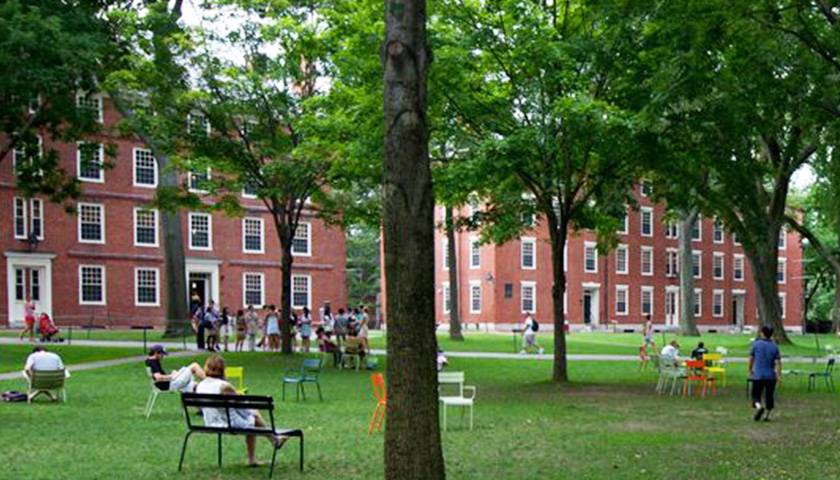by Eric Lendrum
Following a landmark ruling from the Supreme Court effectively ending the practice of race-based preferences in college admissions, Harvard University is facing new civil rights challenges over its practice of legacy admissions.
As reported by The Hill, the Ivy League university is now facing complaints from the Lawyers for Civil Rights (LCR), a left-wing group representing black and Hispanic groups based in the New England area. LCR’s complaint claims that “each year, Harvard College grants special preference in its admissions process to hundreds of mostly White students — not because of anything they have accomplished, but rather solely because of who their relatives are.”
The practice of admitting new students based on whether or not their parents are alumni, or whether or not the students are otherwise related to past students or university donors, is known as “legacy admissions.” LCR argues that such a practice disproportionately benefits White students, while minorities generally don’t benefit from the practice.
“The students who receive this preferential treatment — based solely on familial ties — are overwhelmingly White,” LCR claims in its official complaint. “Nearly 70% of donor-related applicants are White, and nearly 70% of legacy applicants are also White.”
The complaint was filed on Monday, with LCR representing multiple pro-minority groups, including the Chica Project, the African Community Economic Development of New England, and the Greater Boston Latino Network. The complaint was made to the Department of Education’s Office of Civil Rights (OCR), claiming that such practices are in violation of Title VI of the Civil Rights Act.
Ivan Espinoza-Madrigal, the executive director of LCR, said in his own statement that “there’s no birthright to Harvard,” and added that he believes the Supreme Court’s recent ruling should outlaw the practice of legacy admissions as well.
“There should be no way to identify who your parents are in the college application process,” said Espinoza-Madrigal. “Why are we rewarding children for privileges and advantages accrued by prior generations? Your family’s last name and the size of your bank account are not a measure of merit, and should have no bearing on the college admissions process.”
Last week, the Supreme Court ruled that the practice of affirmative action, during which colleges explicitly determine which students will get in based solely on their race, is unconstitutional. Affirmative action has generally provided an artificial boost to black and Hispanic students, while discriminating against White and Asian students.
The landmark precedent was determined in two separate but similar cases, Students for Fair Admissions v. Harvard, and Students for Fair Admissions v. University of North Carolina. The most recently-appointed justice, Ketanji Brown Jackson, recused herself from the case involving Harvard, as she had previously been a member of the Harvard Board of Overseers. As such, the ruling in Harvard was 6-2, while the ruling in University of North Carolina was 6-3.
– – –
Eric Lendrum reports for American Greatness.
Photo “Harvard University” by Harvard University.




